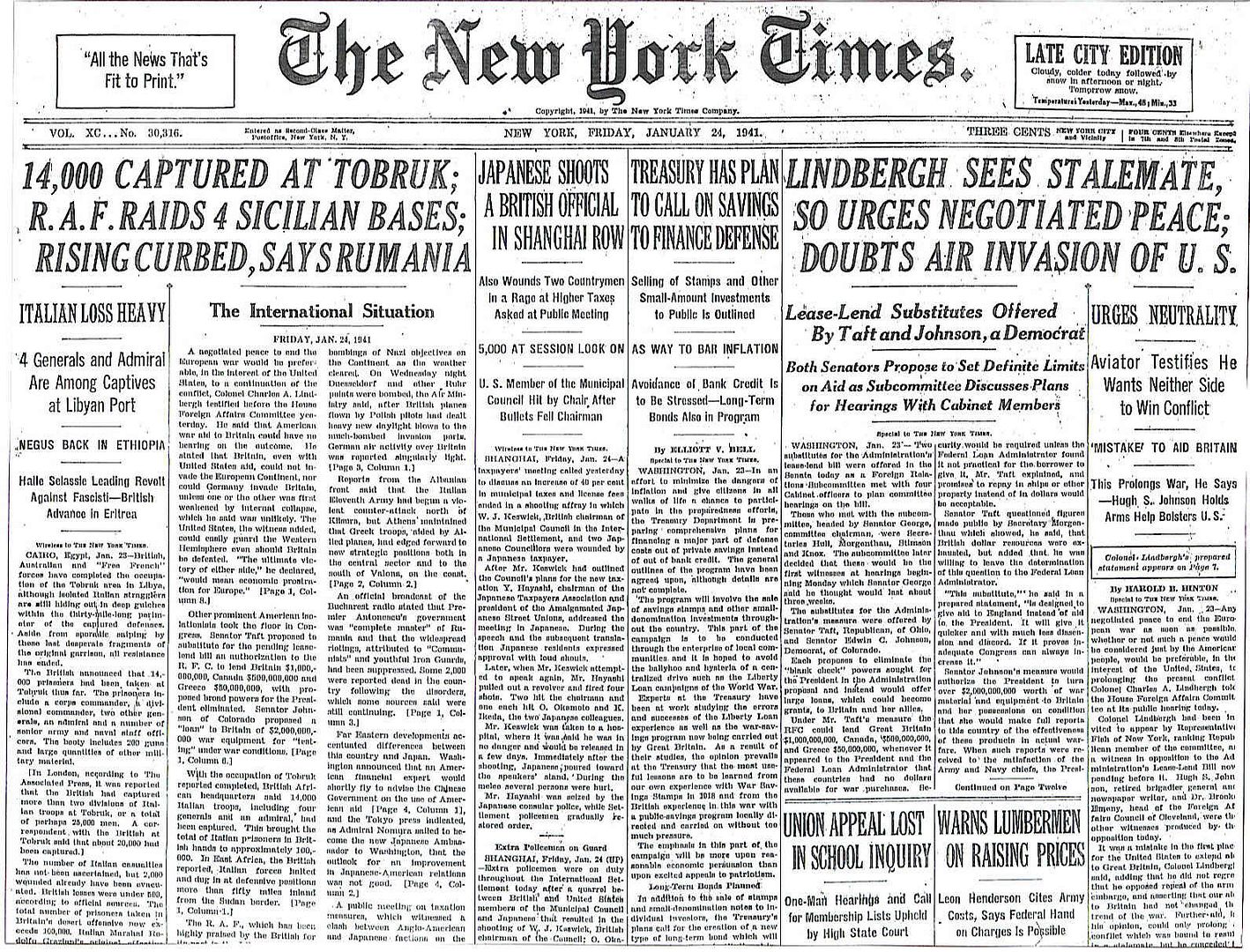
Posted on 01/24/2011 4:36:42 AM PST by Homer_J_Simpson

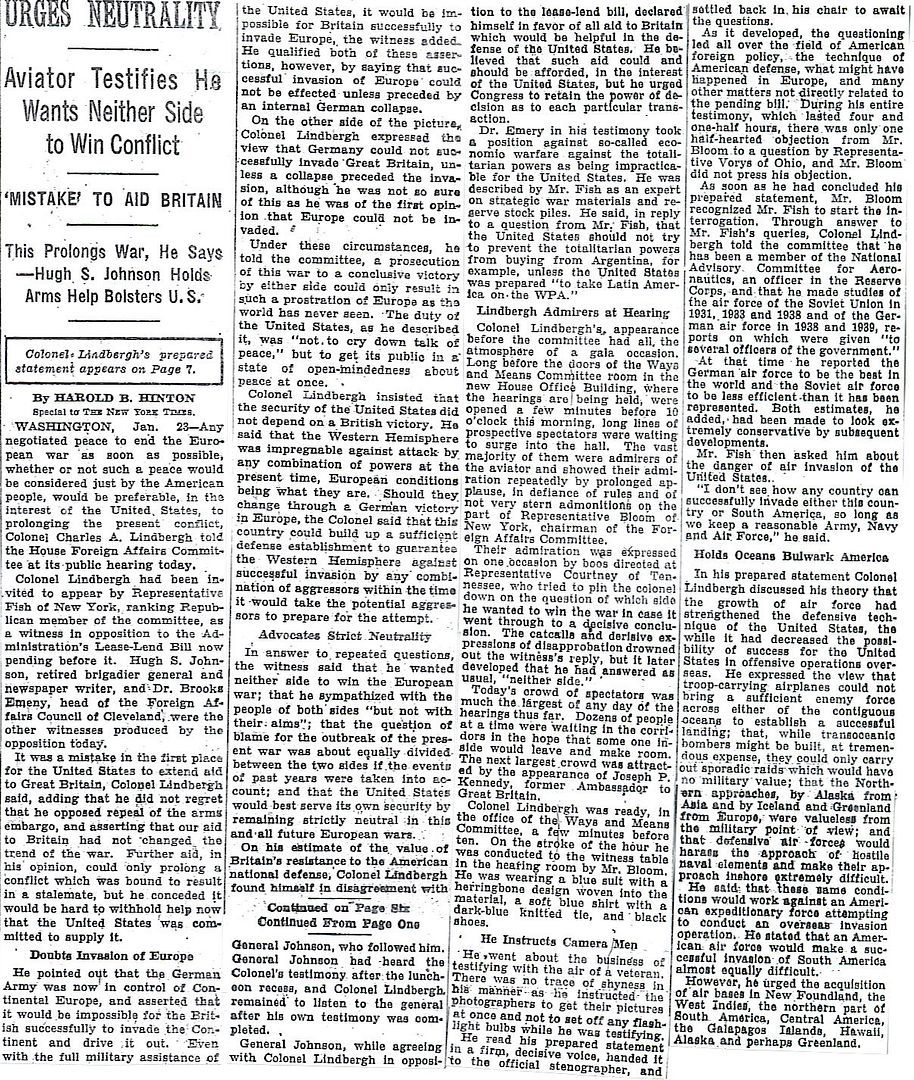
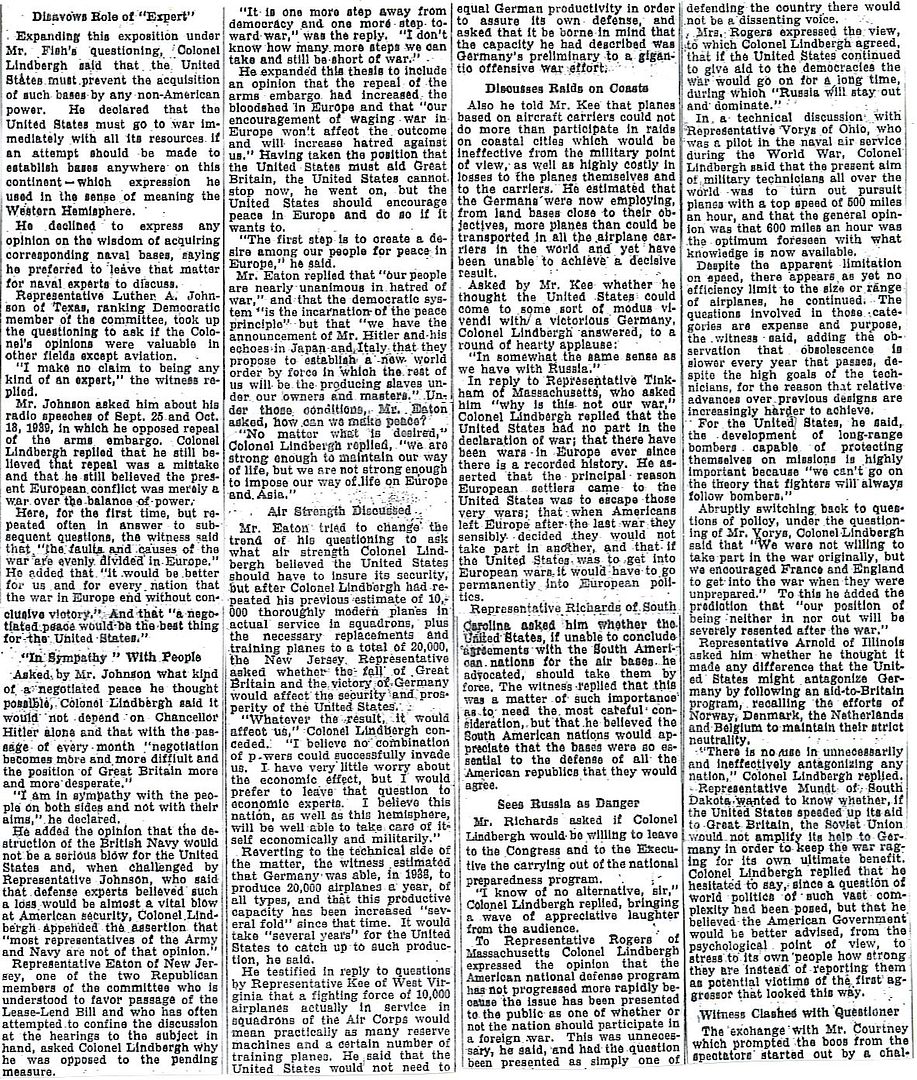
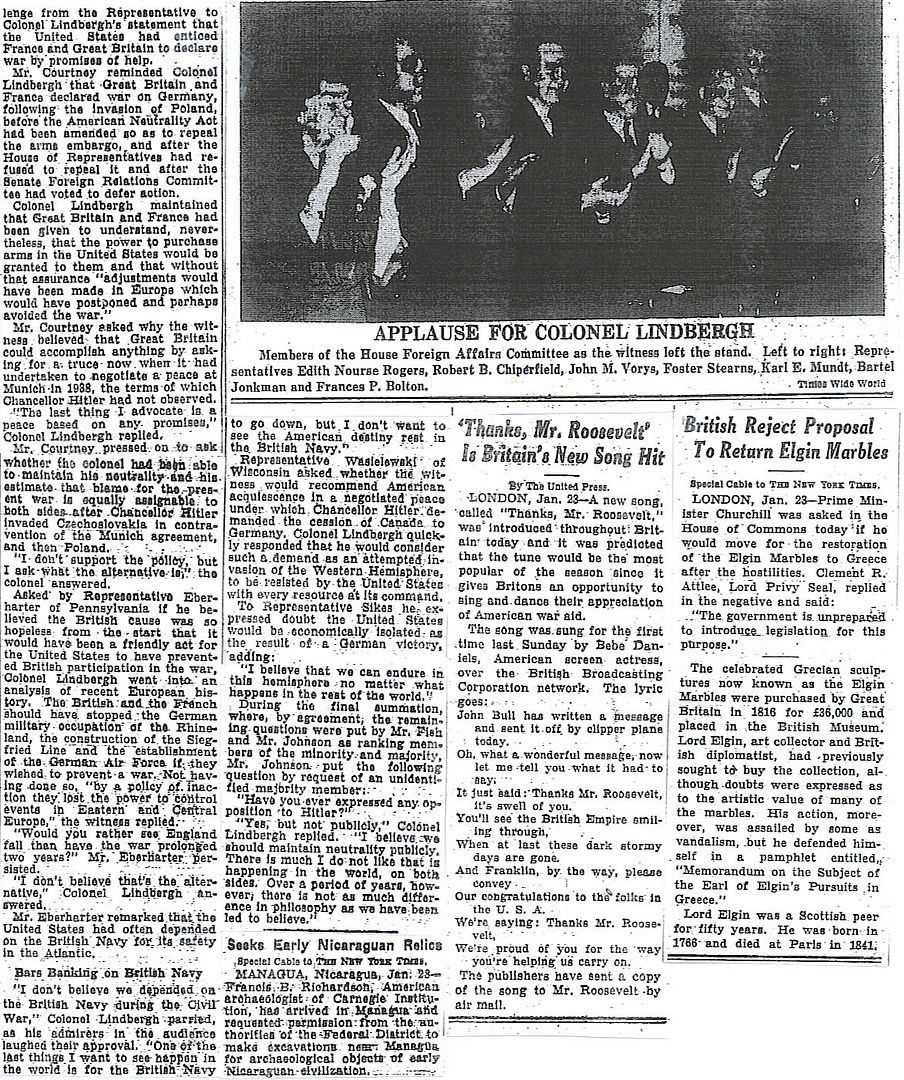
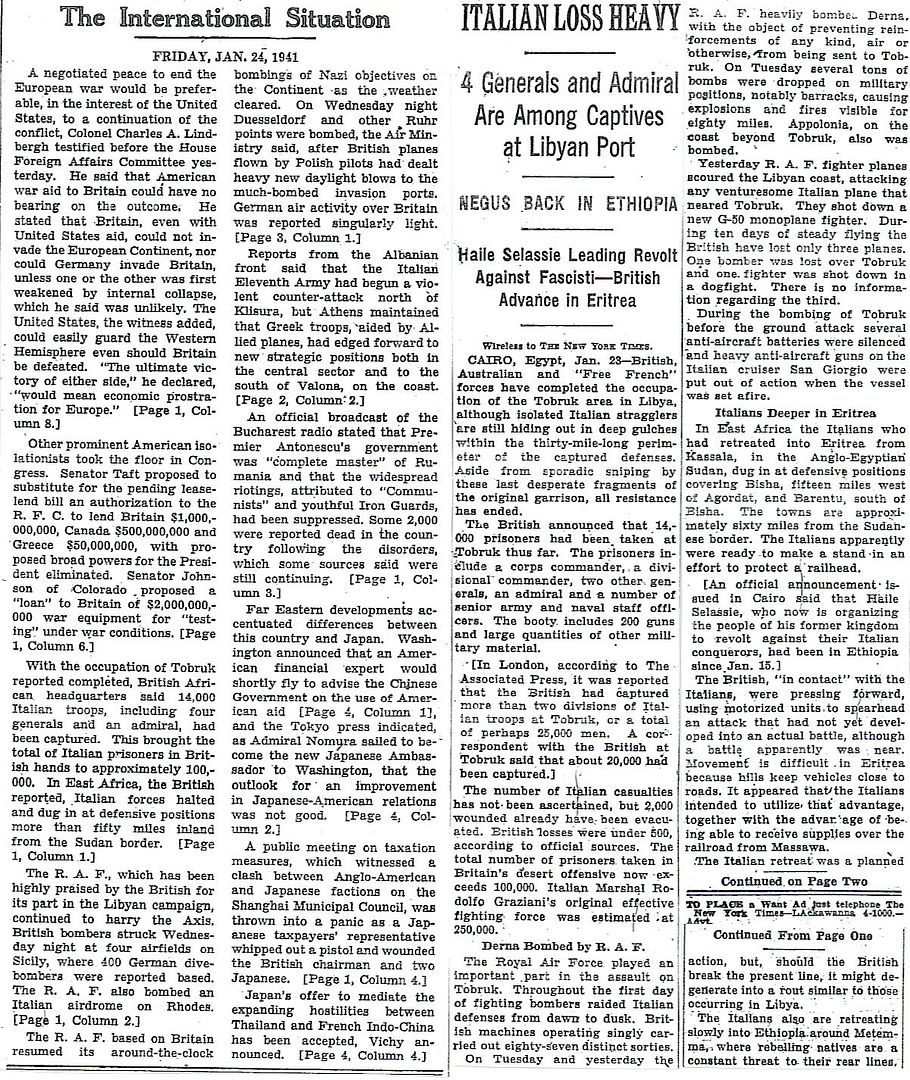
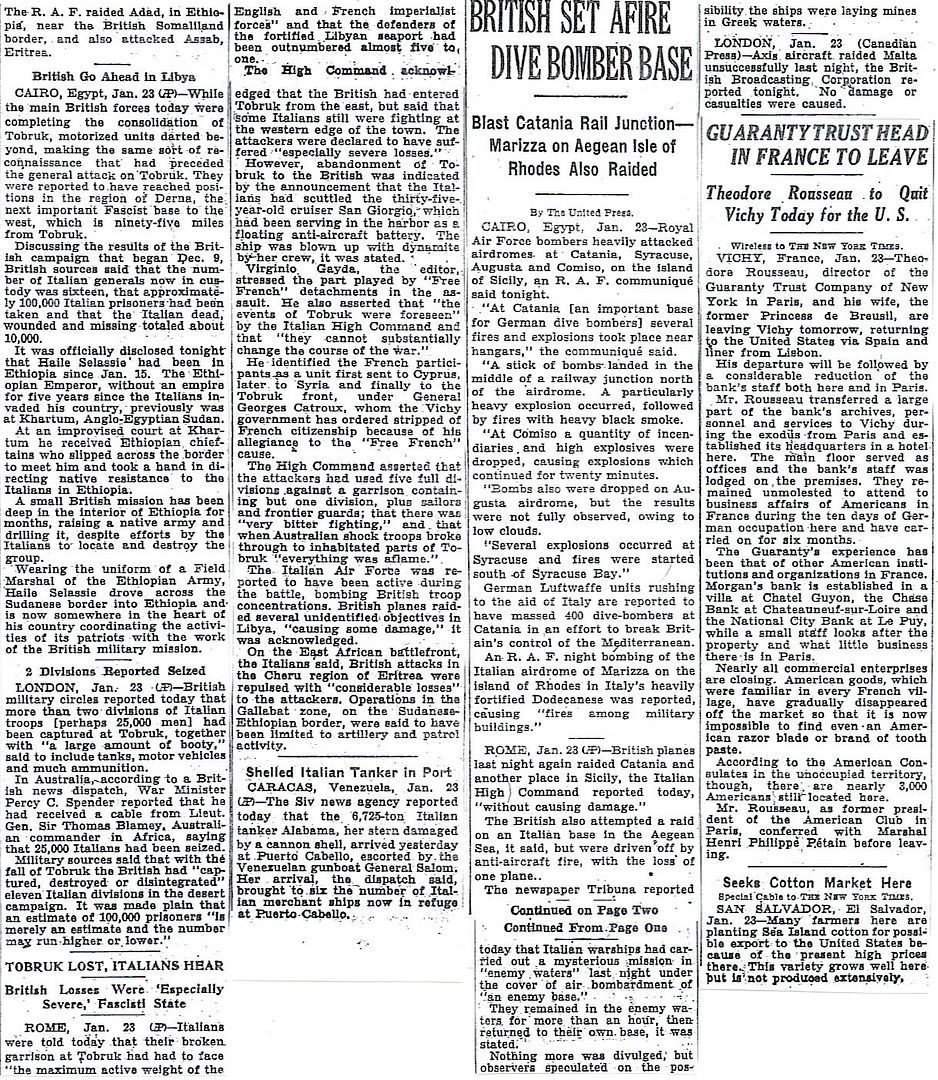
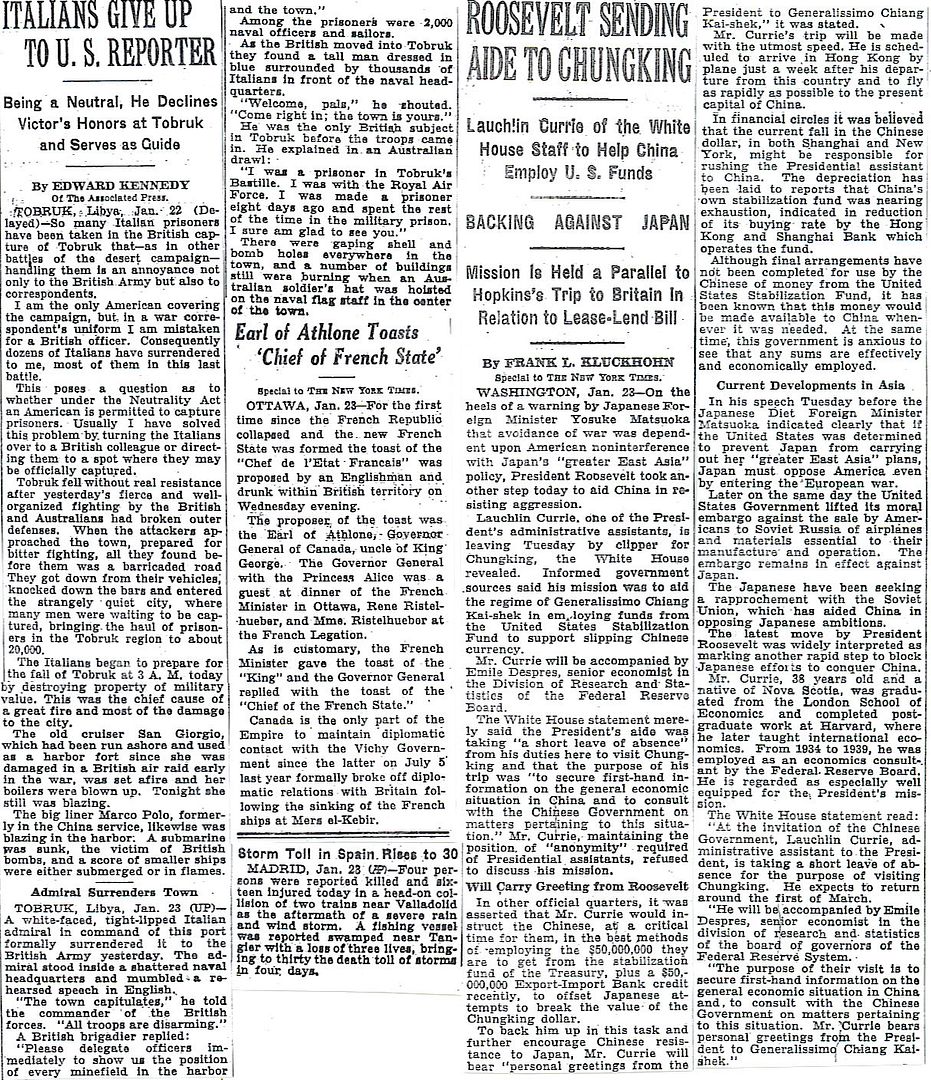
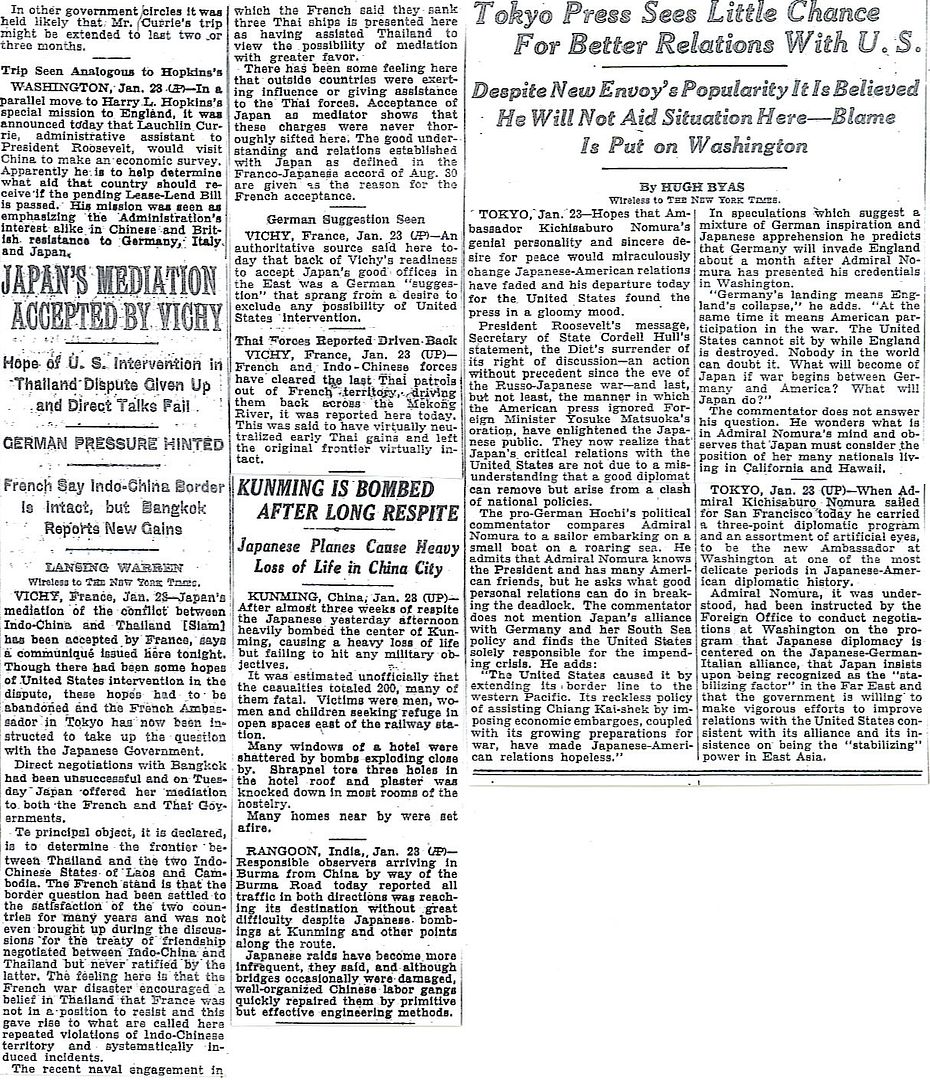
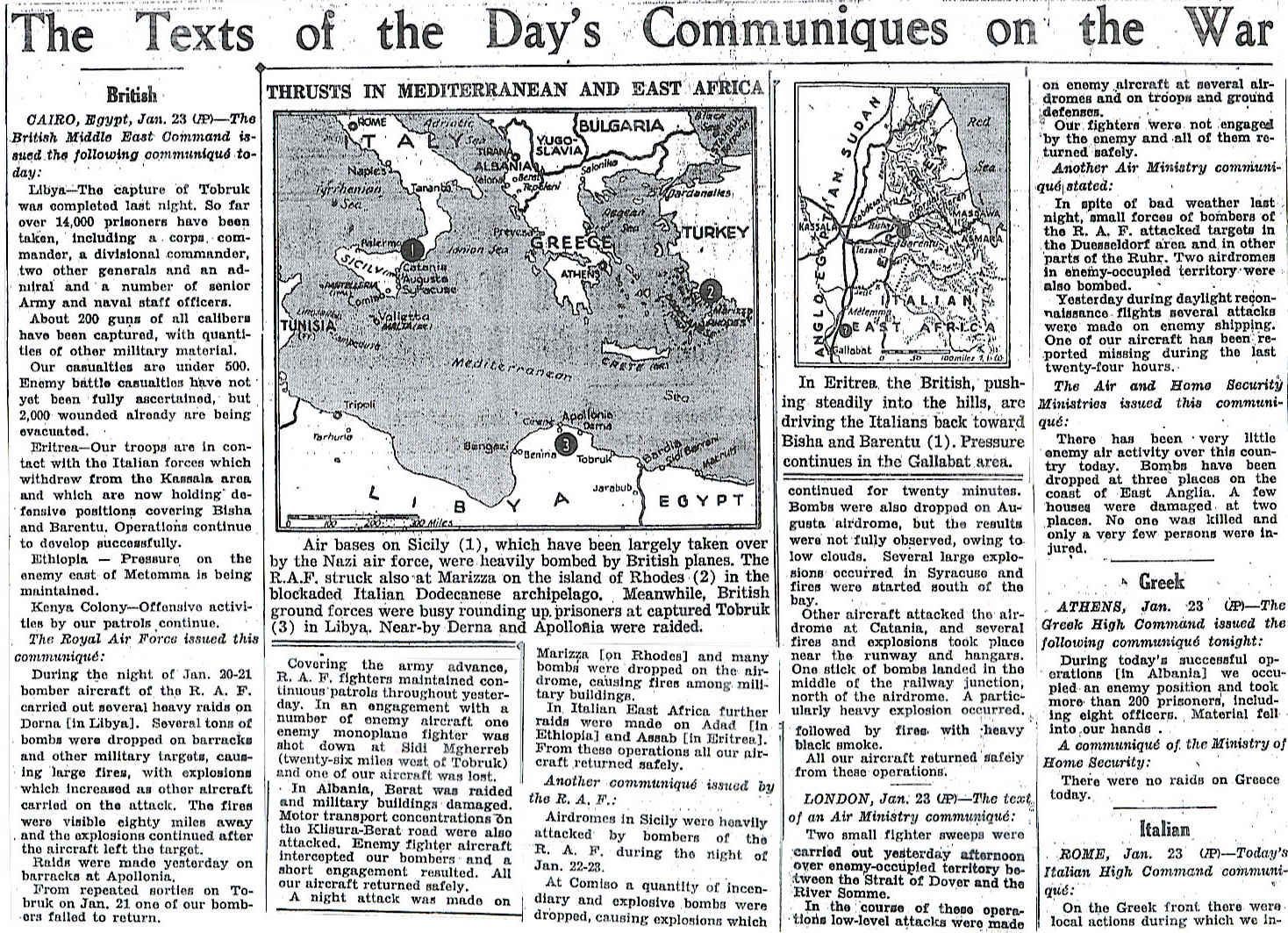
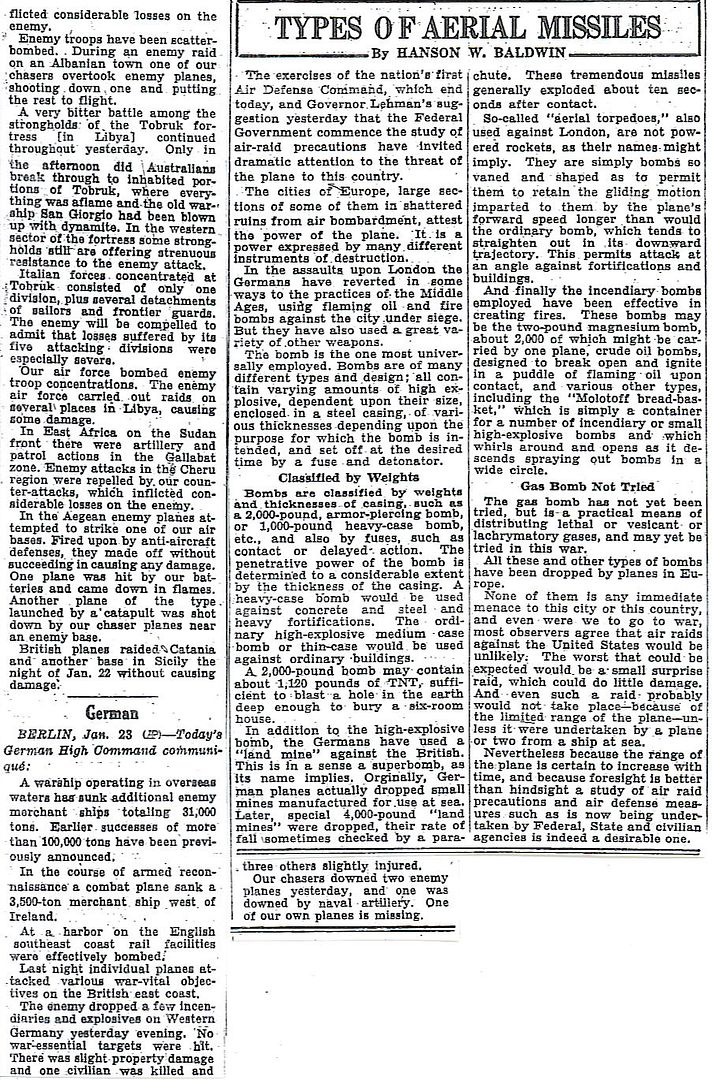
Go back and read again what I wrote.
I said nothing about photos, I said code books and data transmissions regarding the numbers and status of US ships in Pearl Harbor.
My point was: this activity could only go on through the Japanese consulate in Honolulu.
If the consulate were closed, US intelligence would no longer be able to intercept and decode its secret messages.
My understanding is, that's why the consulate was not closed.
I've seen no information on photos you mentioned.
That post #76 devoted 33 words to proving that your word "diatribe" does not apply.
That same post then used about 270 words to answer the substance of your arguments.
Yes, I do my best to add a bit of mild humor here and there.
But "diatribe" is a bit too strong of a word to describe very gentle joshing, pal. ;-)
I don’t think diatribe is too strong of a word. Sorry if that offends you. It is entertaining though.
The FBI has info of Japanese spies passing photos and other information to the Japanese command, which forwarded it to the Japanese fleet. They did NOT use any consulates. See Michelle Malkin, “In Defense of Internment.”
Prange, Stinnet and Victor all discuss at length Japanese spy reports, i.e., "bomb plots", out of the consulate in Honolulu.
They say the Japanese Honolulu consulate was wire-tapped, that the Japanese diplomatic codes had long been broken, and that US intelligence was reading such messages in real time.
Do you claim this is not true?
Note again, we're talking about PHOTOS, not "diplomatic messages." Do you deny Malkin's photostatic copies of FBI reports?????
No, you keep changing the subject:
Why do you keep doing that?
No, YOU keep changing the subject. I already agreed with you that the Consulate no doubt provided a source of spying but NOT THE ONLY SOURCE. Why won’t you admit that in light of FBI documents proving it?????
Proving what?
That some miscellaneous photos around Pearl Harbor were mailed to Japan at some point?
And these photos played exactly what role in the Japanese decision to attack the US fleet?
And, by the way, exactly how did these photos come into possession of the FBI?
Were they intercepted perhaps?
Would this not demonstrate that even the FBI was aware of Japan's interest in the Pearl Harbor fleet, and yet somehow Kimmel & Short were not informed?
Here's my key point: as December 7, 1941 drew nearer, Tokyo demanded ever increasing reports from the Honolulu consulate on both those ships enterring and leaving the harbor, and also on those still in port.
Prange & others argue this data was essential to Japan's final decision to attack.
Nothing I've seen suggests occasional mailed photos could have replaced the consulate's real-time fleet status reports.
Instead of asking me, look at Malkin for your answers about how the FBI knew.
And so "as December 7 drew nearer" and warning signs were all around, the utter incompetence of the commanders on the scene becomes even more stunning. You as a commander, need some sort of mandate from Washington to protect your own fleet? To order long range reconnaissance??
You won't answer the question: why did these bozos not have long range recon out? Heck CIVILIAN planes spotted the Japanese fleet before the military did. And that somehow is FDR's fault? You're trully smoking something if you think any of this in any way exhonerates Kimmel or Short, or incriminates FDR. Quite the contrary, the FBI was doing a good job of collecting info, but as Braezel and Roush show, were pitiful at analyzing and transmitting it upwards until 1942.
Instead of asking me, look at Malkin for your answers about how the FBI knew.
And so "as December 7 drew nearer" and warning signs were all around, the utter incompetence of the commanders on the scene becomes even more stunning. You as a commander, need some sort of mandate from Washington to protect your own fleet? To order long range reconnaissance??
You won't answer the question: why did these bozos not have long range recon out? Heck CIVILIAN planes spotted the Japanese fleet before the military did. And that somehow is FDR's fault? You're trully smoking something if you think any of this in any way exhonerates Kimmel or Short, or incriminates FDR. Quite the contrary, the FBI was doing a good job of collecting info, but as Braezel and Roush show, were pitiful at analyzing and transmitting it upwards until 1942.
But I did answer the question. See post #70 above.
LS: "You're trully smoking something if you think any of this in any way exhonerates Kimmel or Short, or incriminates FDR"
Once again, Kimmel and Short claimed, after 12/7/41, that had they been informed of everything Washington knew beforehand, then Kimmel & Short would have figured out an air attack was coming -- and prepared for it appropriately.
But they were not fully informed, indeed, they were misdirected to expect sabotage, not air attacks.
Just as you yourself, LS, have long argued, Washington expected those missing Japanese carriers were heading South, not East -- as indeed some were headed South. But not all of them.
But Kimmel & Short claimed that had they known what Washington knew, they would have figured out what it seems that Washington did not: where those missing carriers were headed, and how to be ready.
You've lost this round. Any commander, who knows an enemy has forces out ANYWHERE, would have long-range recon. Saying, "I wasn't ordered to" or "I didn't know what Washington knew" is slimy and certainly not becoming an officer, who always takes responsibility. Indeed, most decent officers would take pride in the fact that they would have taken precautions even when not being ordered to.
But the kicker is that the "war message" of a few days earlier made it absolutely clear they should be on a war footing.
So now you have two huge unanswered questions:
1) Why did they have no long-range recon out?
2) Why did Short change the alert levels and NOT inform Washington---which inquired as to what alert he was on and hearing his response concluded he was already on the highest alert level . . . when in fact he was on the LOWEST alert level (itself unfathomable).
I'll quote from Prange, starting on page 409:
Bellinger had a total of eighty-one patrol aircraft in the Hawaiian area, including twelve on Midway.
Of those, twenty-seven were old PBY-3 types, and fifty-four the latest model PBY-5s.
These arrived in increments...
Therefore, they "were experiencing the usual shakedown difficulties of new planes and their maintenance was hampered by a almost complete absence of spare parts."
Halsey recalled "many discussions between Admiral Bellinger and Admiral Kimmel whether they would use a plane continually and keep a full coverage and have them all go to pieces at once, or put out the best partial covering they could and keep the planes in shape so that they could be used in case of emergency."
Still, Kimmel did institute patrol measures at the outlying bases...
Both Kimmel and Short exercised poor judgment in this crisis. Granted that the Navy did not have sufficient in-commission aircraft for a full 360-degree sweep, it had enough to cover the critical northern sector.
The Navy Court of Inquiry absolved Kimmel of blame in this matter, nevertheless, the decision to keep the Fleet patrol planes available for sea operations necessitated a choice of priorities.
Obviously, whatever the lip service various defensive plans for Oahu gave the concept, Kimmel did not in the least anticipate an air attack at the initiation of hostilities.
Otherwise, he would not have skimped on reconnaissance in favor of training, especially after he received the warning on November 27.
The Army investigating board chided Short for assuming, with "a large group of ranking subordinates," that the Navy was conducting this scouting from the task forces [Halsey's Enterprise and Newton's Lexington].
These assumptions and failures to communicate were not justifiable in view of the grave international situation.
Short had only to ask Kimmel or Bloch, "Can I lend you my B-17s to help with your patrol?" to discover that the Navy was not carrying out its assigned mission of long-range reconnaissance.
And a quick check with Washington would have revealed that the War Department meant exactly what it said in directing that Short institute reconnaissance.
[Secretary of War] Stimson called it "a direct order."
Yet the Navy must accept the lion's share of blame for the long-range scouting portion of this tragedy of errors.
The responsibility ultimately was Kimmel's, but specifically it belonged to Bloch, who was responsible for the Navy's portion of the defense of Pearl Harbor, in particular for long-range air patrols.
I'll break here, but Prange goes on and on about exactly who was to blame for what.
In the end, everyone involved gets some of his blame, including Washington:
Nevertheless, one cannot absolve Washington of all blame.
Too many assumptions existed there as well as on Oahu...
The War Department was particularly culpable in not checking up on Short's reply to Number 472, comparing the two messages and immediately advising Short that "precautions against sabotage" did not fill the bill....
So Prange makes no effort to white-wash anyone's responsibility for errors.
Neither does he charge Washington with deliberately withholding information in order to make Pearl Harbor more vulnerable.
But other authors have made that charge.
But you basically confirmed what I said. Kimmel was incompetent and despite war messages did not have long-range patrols of any type out.
Nor have you (probably because you continue to rely on Prange) acknowledged that Short MISLED Washington by reversing the alert levels and not telling Washington.
But I think we're finished unless you can cite someone besides Prange. (And BTW, since Mitchell in 1928 said that Japan would use aircraft to attack PH, why would Kimmel "not expect it?")
I have three books handy,
Now, for what it's worth, I see a trend here -- the newer the book, the more "revisionist" it is, and the more blame for Pearl Harbor shifts away from Kimmel & Short and on to FDR, Marshall, Stark & company in Washington.
So, bottom line, LS you cite some data which Prange didn't mention, and it shifts blame towards Short.
Stinnett and Victor also cite loads of data which Prange did not, and their new data shifts the blame more towards Washington in general, and FDR in particular.
Which is the truth? We'll likely never know for certain.
But I've said before that FDR was then the nation's spymaster-in-chief, and there was no intelligence related to war and peace that he would not be aware of.
So I highly doubt the claim that FDR did not know what was coming.
Stinnett is as bad as they get---forget the publication date. Have you actually looked at his endnotes? He never gives any real sources for his most explosive claims when you look at the endnotes. Throughout he uses mush phrases like "FDR must have known" or "surely this message was transmitted." It's garbage, and no reputable historian does such stuff. Moreover, he was entirely fooled by the phoney Japanese radio traffic (which Commander Phil Jacobsen exposed as a lie that the revisionists bought into); he never understood the cryptanalysts' rebuttals of himself or Wolford--and these cryptanalysts HATE these guys because the Navy cryptanalysts know that it implicates them and says they were part of the "conspiracy." You really should talk to some of them.
Don't know the last book you reference. Can't keep up with all the kooks these days. But newness of publication alone isn't sufficient to count as evidence. EVIDENCE counts as evidence. Begin by reading Jacobsen. He's absolutely the best. Get back to me after you've checked out his complete dismantling of these arguments. Til then, we don't have much more to discuss.
Say, I know Philip Jacobsen is your personal buddy, and all, but he is nowhere to be found on the radar-screen of Pearl Harbor books.
My local Barnes & Noble carries the books by Prange, Stinnett, Victor and one or two others -- nothing by Jacobsen.
The Barnes & Noble web site produces a listing of hundreds of Pearl Harbor books, but nothing I could find by Jacobsen.
Amazon has nothing on Jacobsen that I could find.
Even a google search turned up nothing about a Jacobsen book (possibly I'm searching wrong?).
So I'll take it all to mean that despite your affection for him, Jacobsen is not really a major player in the debate.
Here is a link to a Pearl Harbor website book review page covering:
Note that at last here, we see Jacobsen provides a negative review of Stinnett's Day of Deceit -- a review that is then quoted many other places.
And here is a most interesting debate between Stinnett himself and a fellow named Stephen Budiansky.
Very hard for me to say if either one is telling the whole truth.
Finally, from time to time I check in on Wikipedia (no not just to p*ss-off CougarGA7, who hates it), just to see what they are saying, and this time found a pretty decent summary of many points made by different authors.
So here is the bottom line as I see it:
For people like LS, your buddy Jacobsen and all the rest to claim Washington didn't know enough to have reduced Japanese success at Pearl Harbor:
Also, I should mention, there are several brand new books on Pearl Harbor scheduled for release over the next few months, each promising to tell us the really truthful truth about what actually, factually, by-golly this time for certain happened, no lies, cross our hearts and hope to die... ;-)
LOL, I can hardly wait... ;-)
You have now unsuccessfully dodged every decent question posed: you won't address Jacobsen's PROOF that the Japanese were using decoy signals; you skirted the issue that Kimmel and Short incompetently did not have long-range aircraft out; you didn't address the EVIDENCE that I sent you in a private mail so as not to embarrass you that Clausen and Lee---whom Prange knew about and didn't acknowledge---showed that the 14 part "war" message was never delivered (which makes the Layton book irrelevant, since Layton didn't know that); you refused to admit that Rochefort DIDN'T HAVE the Purple code breaking machinery; you completely miss (and have to be pretty thick here, I must say) the fact that Clausen had access to Top Secret files and Prange and Stinnett did not!!!!; or that Layton could not coordinate any kind of intelligence; or that Marshall was NOT notified about the "winds" message; and on and on and on.
Now, for the zillionth time---and I'm finished with you because you are totally impervious to actual evidence---the commanders were woefully incompetent and the cryptanalysts have overwhelmingly shown that any "warnings" they had were decrypted and analyzed LONG after 1942.
Finally, you seem tone deaf to the fact that just because something is (foolishly) stated by Lindbergh or printed in a crap book like Stinnett it carries equal weight as evidence from people who were THERE and had ACCESS to the materials. You, sir, really need to understand how historians do their jobs and why Stinnett and his ilk are NOT historians.
Once again you misrepresent me. I've never said I hate Wikipedia and you have never pissed me off. What I have said is that Wikipedia is not a good source since it is subject to being edited by anyone who has a computer and an agenda. And the closest thing you have ever gotten to a rise out of me is a small chuckle and the showing of your latest rant to my wife.
Disclaimer: Opinions posted on Free Republic are those of the individual posters and do not necessarily represent the opinion of Free Republic or its management. All materials posted herein are protected by copyright law and the exemption for fair use of copyrighted works.